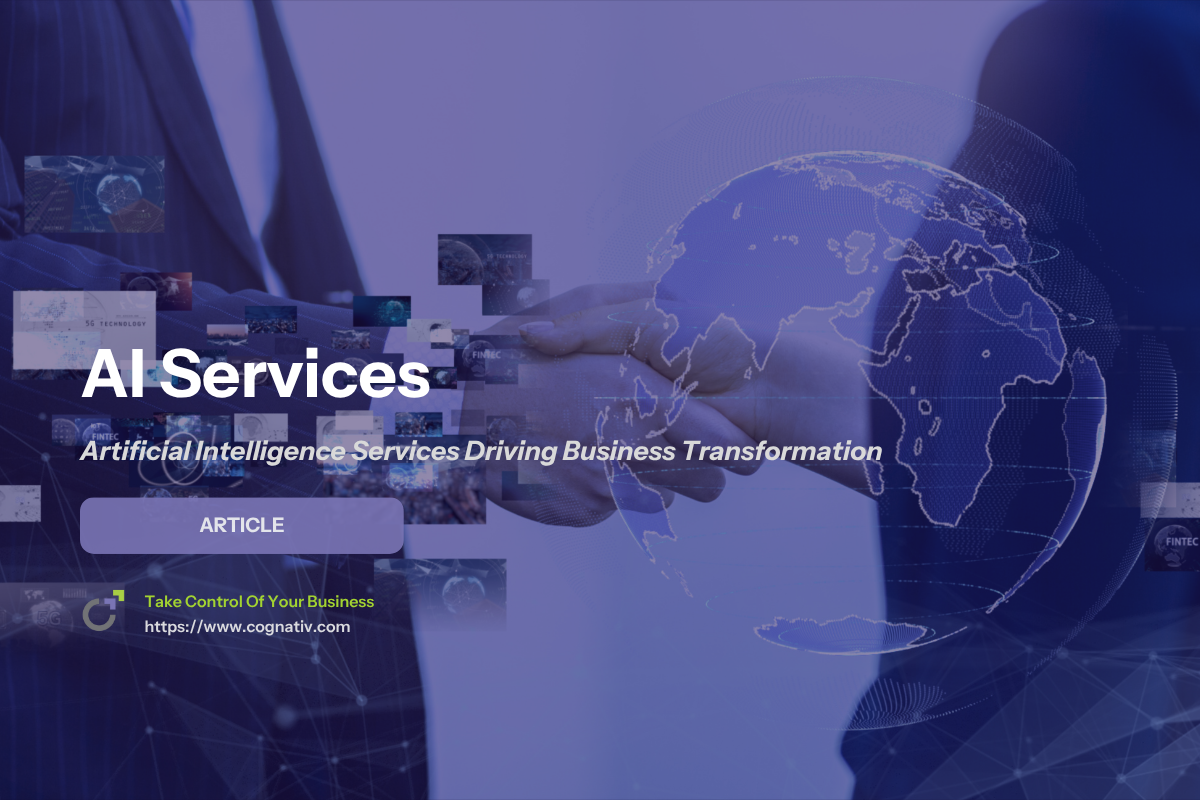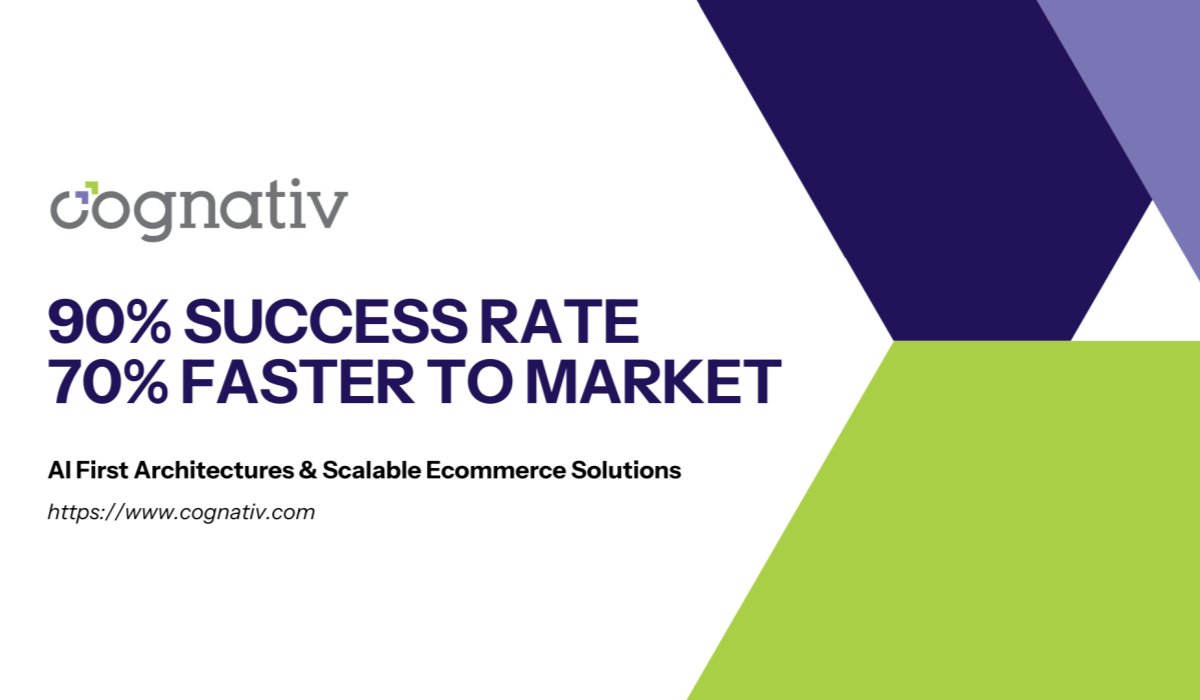Artificial Intelligence Services Driving Business Transformation
Artificial intelligence (AI) is fundamentally reshaping how businesses operate, enabling smarter decision-making, streamlined operations, and improved customer experiences. From generative AI to AI agents and responsible AI frameworks, modern AI solutions empower companies to unlock real value, solve operational challenges, and drive sustained growth.
Businesses embarking on the AI journey are increasingly relying on AI services, cutting-edge AI tools, and scalable AI technologies to transform their core operations. Whether it’s automating workflows or deploying AI-powered technologies, the AI era marks a new frontier in achieving business agility and competitive advantage. Process automation, enabled by artificial intelligence services, is key to improving operational efficiency and streamlining complex business tasks.
Key Takeaways
AI solutions are reshaping business strategies, improving productivity, and enhancing decision-making.
Responsible AI and ethical adoption are essential for maintaining trust and mitigating risks.
Investing in AI infrastructure and services leads to long-term value and innovation.
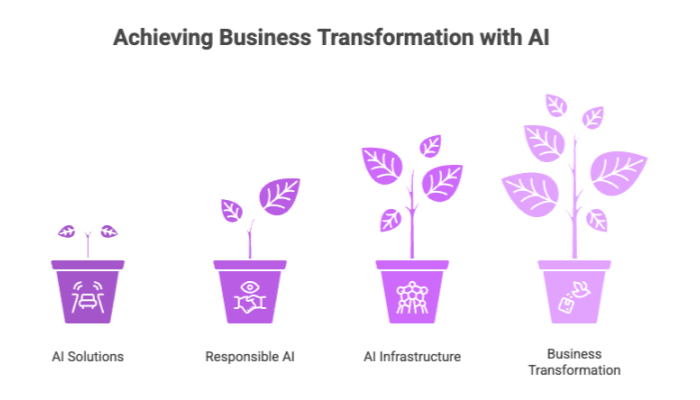

Introduction to AI
Artificial intelligence (AI) is revolutionizing the way businesses operate, ushering in a new era of innovation and opportunity. Today’s organizations are leveraging AI solutions—powered by advanced machine learning and generative AI—to gain a decisive competitive advantage. The AI journey begins with recognizing the transformative potential of AI technologies and identifying where AI services can deliver the most value across the business.
As businesses navigate the AI era, the integration of data science and AI becomes essential. Data scientists and business leaders must collaborate closely to develop strategies that harness the full power of AI, ensuring that every solution aligns with business objectives and drives better business outcomes. By embracing AI integration, organizations can unlock new efficiencies, accelerate business transformation, and position themselves at the forefront of their industries. The key to success lies in leveraging AI to create solutions that not only address current challenges but also anticipate future needs, delivering sustained value across the entire organization.
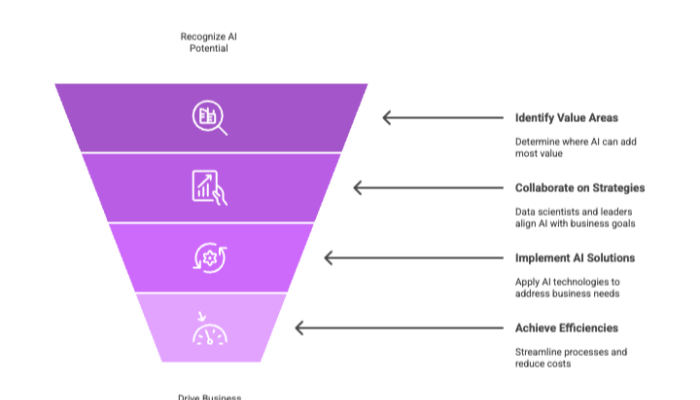

AI Strategy and Planning
A successful AI implementation starts with a robust, measurable, and future-ready AI strategy.
Crafting an AI strategy helps align AI adoption with organizational goals. It involves analyzing real-world examples of AI use, assessing potential business value, and evaluating existing AI infrastructure. Key stakeholders such as data scientists and technology leaders collaborate to establish an AI roadmap that prioritizes business needs, ensures regulatory compliance, and delivers better business outcomes.
Strategic AI planning also helps mitigate risks and provides a clear governance structure that includes ethical considerations, data privacy, and human oversight.
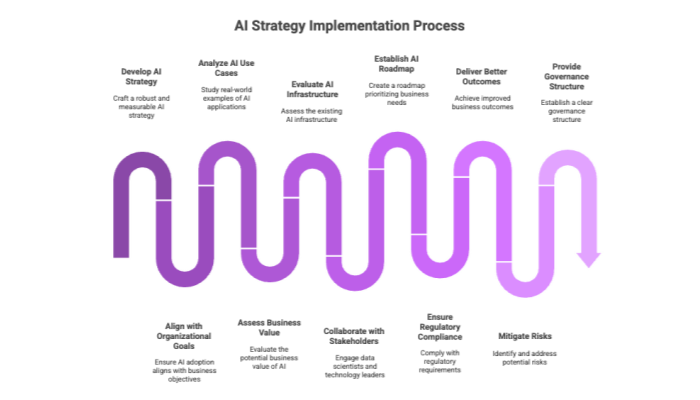

Adopting AI
Adopting AI is not just a technology decision—it’s a transformational shift. It requires integrating foundation models, machine learning algorithms, and AI workloads into existing ecosystems.
Companies must navigate ethical hurdles, ensure transparency, and address potential bias within AI systems. This involves defining policies for responsible AI, establishing a clear governance framework, and ensuring transparency in AI decision-making.
When implemented effectively, AI adoption improves employee productivity, enhances customer experiences, and drives business transformation.
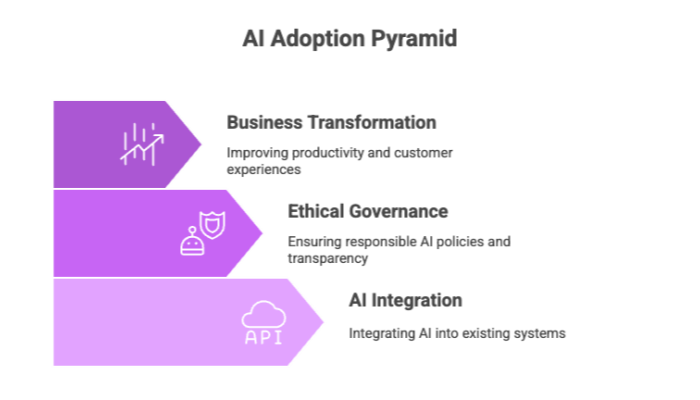

AI Infrastructure
Investing in robust AI infrastructure is critical to support advanced AI workloads and scale AI implementations across the entire organization.
An effective AI infrastructure includes:
Data platforms for managing and storing enterprise data
Compute capabilities to support model training and deployment
Integration with cloud services and AI accelerators
With the right infrastructure, businesses can streamline operations, lower costs, and unlock the real business impact of AI.
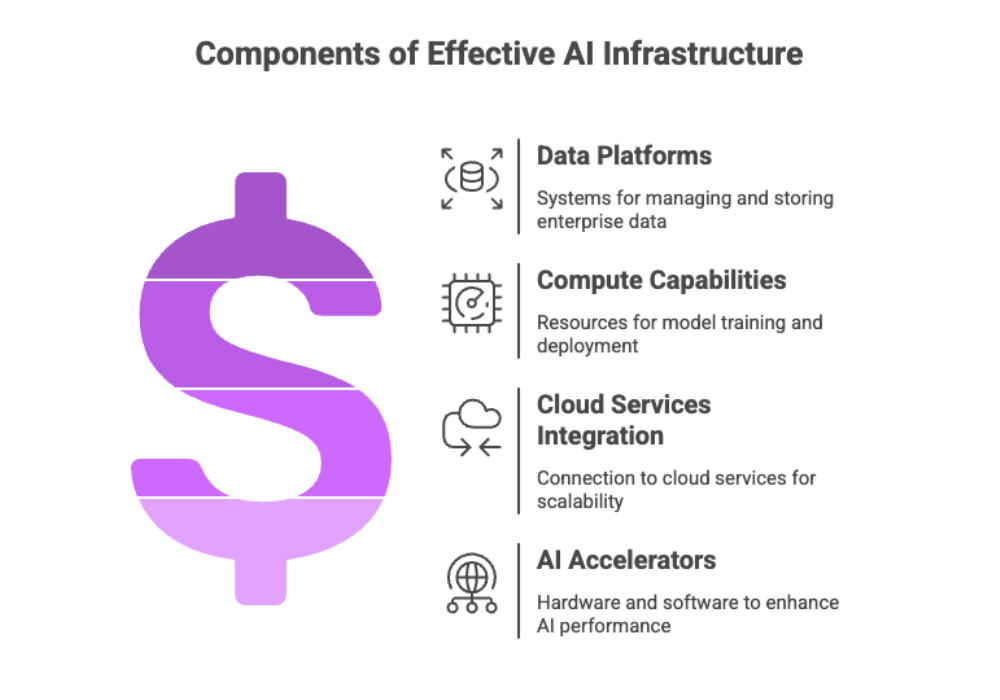

AI Services and Solutions
AI services offer consulting, implementation, and maintenance of AI systems. The company is recognized for its expertise in data and AI services, with specialized offerings and industry leadership in North America for 2025. These include:
Building custom solutions
Model training and optimization
Deployment and continuous monitoring
Leading AI solutions combine natural language processing, machine learning, and AI agents to solve business challenges across domains such as retail, finance, and healthcare.
These services help companies move from experimentation to scale, allowing them to leverage AI for strategic advantage.
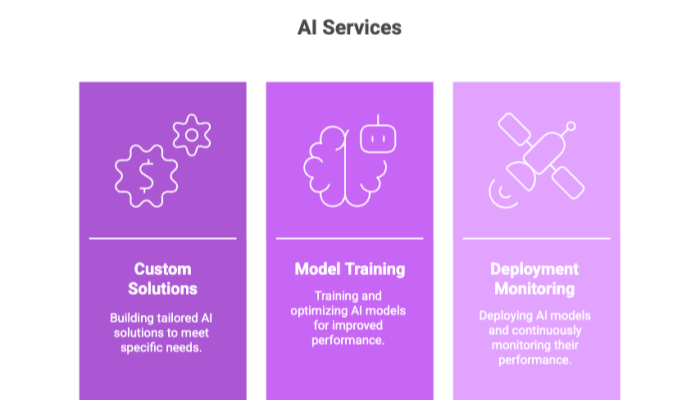

AI Innovation and Research
Ongoing AI innovation and R&D are pivotal for staying ahead in the AI era.
Modern enterprises invest heavily in AI labs and academic partnerships to explore:
Generative AI models for content creation
Predictive analytics for demand forecasting
AI agents for automating internal and customer-facing workflows
For more insights on software development, AI strategies, and eCommerce tech trends, visit Cognativ's blog.
AI research also supports responsible AI by exploring bias mitigation, explainability, and safety—critical for long-term AI success.
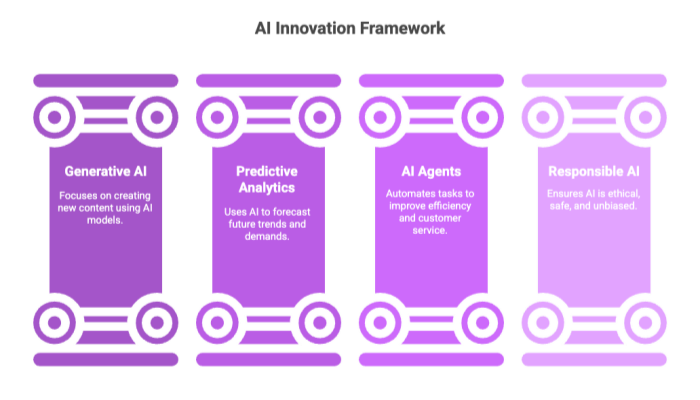

AI Agents and Automation
AI agents are digital entities capable of making autonomous decisions. From AI-powered assistants to customer service bots, AI agents offer immense value in task automation, improving speed and accuracy.
They:
Help automate repetitive tasks
Increase decision-making efficiency
Free human resources for strategic tasks
With the right policies and monitoring, AI agents reduce operational burdens and contribute to scalable AI-powered transformation.
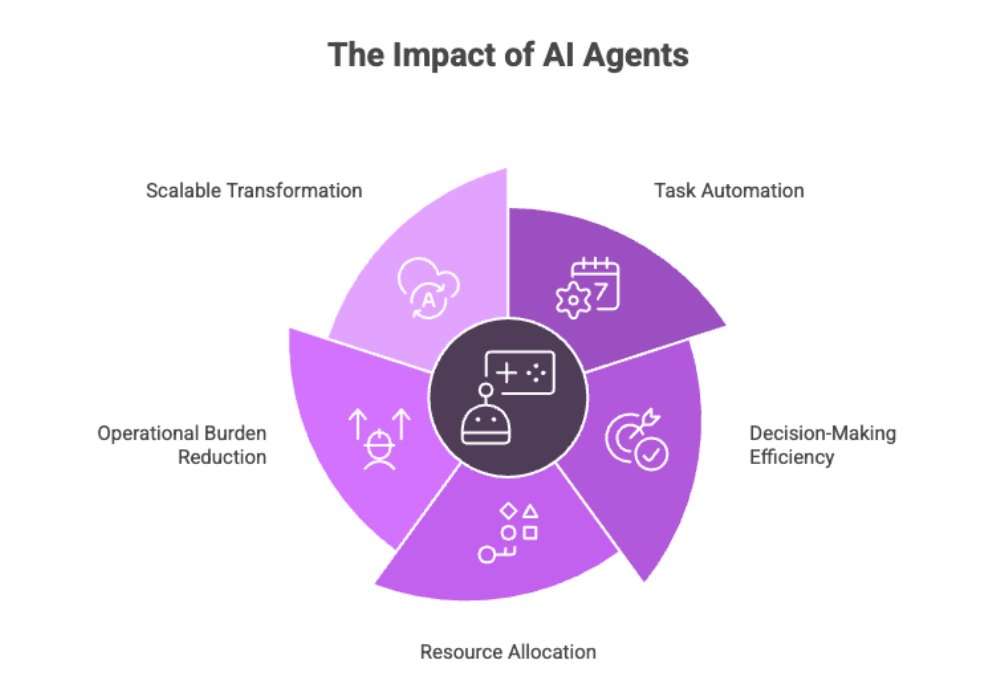

AI Powered Technologies
Modern AI-powered technologies are reshaping industries by automating interactions and enabling real-time decision-making. Examples include:
Chatbots that provide 24/7 customer service
Virtual assistants integrated into business workflows
Intelligent document processing tools that streamline operations
These technologies not only improve response times and reduce labor costs but also enhance customer experiences and help businesses leverage AI for better business outcomes. Additionally, they deliver actionable insights through real-time analytics, enabling more informed and effective decision-making.
However, implementing these solutions requires careful evaluation of potential risks such as data security, bias in decision-making, and overdependence on automation.
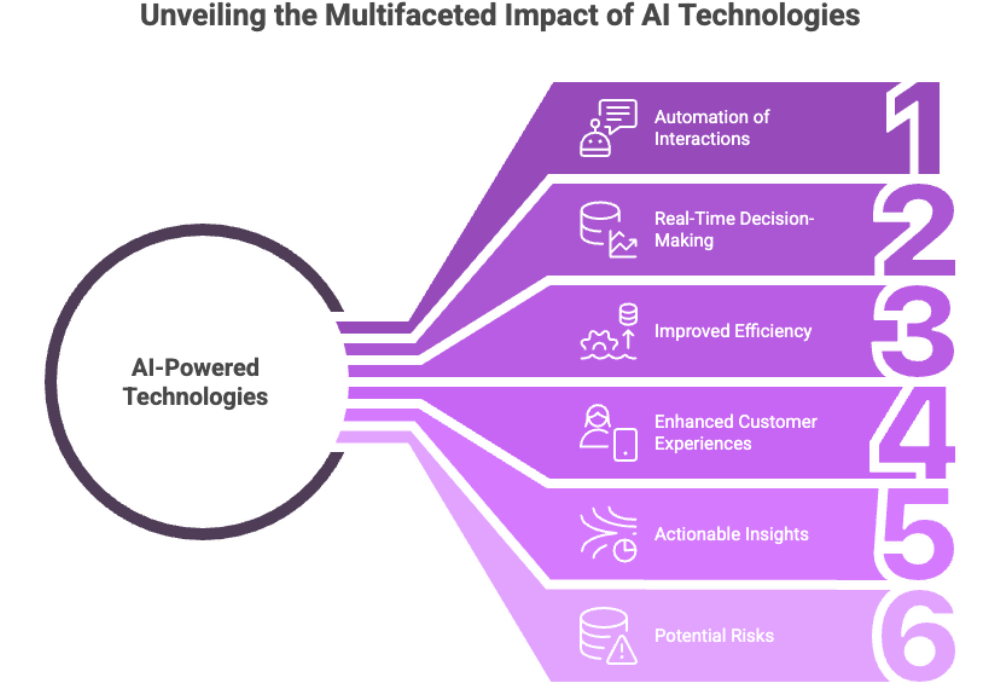

Agentic AI
Agentic AI refers to autonomous AI systems that can operate, learn, and make decisions with minimal human intervention. These systems are capable of performing tasks such as:
Monitoring supply chains
Executing dynamic pricing models
Managing real-time data for analytics and reporting
Agentic AI is particularly powerful for business transformation, as it can unlock efficiencies and identify new revenue opportunities through adaptive learning and smart automation.
Businesses using agentic AI should apply a strong governance framework to ensure responsible AI practices and prevent unintended consequences.
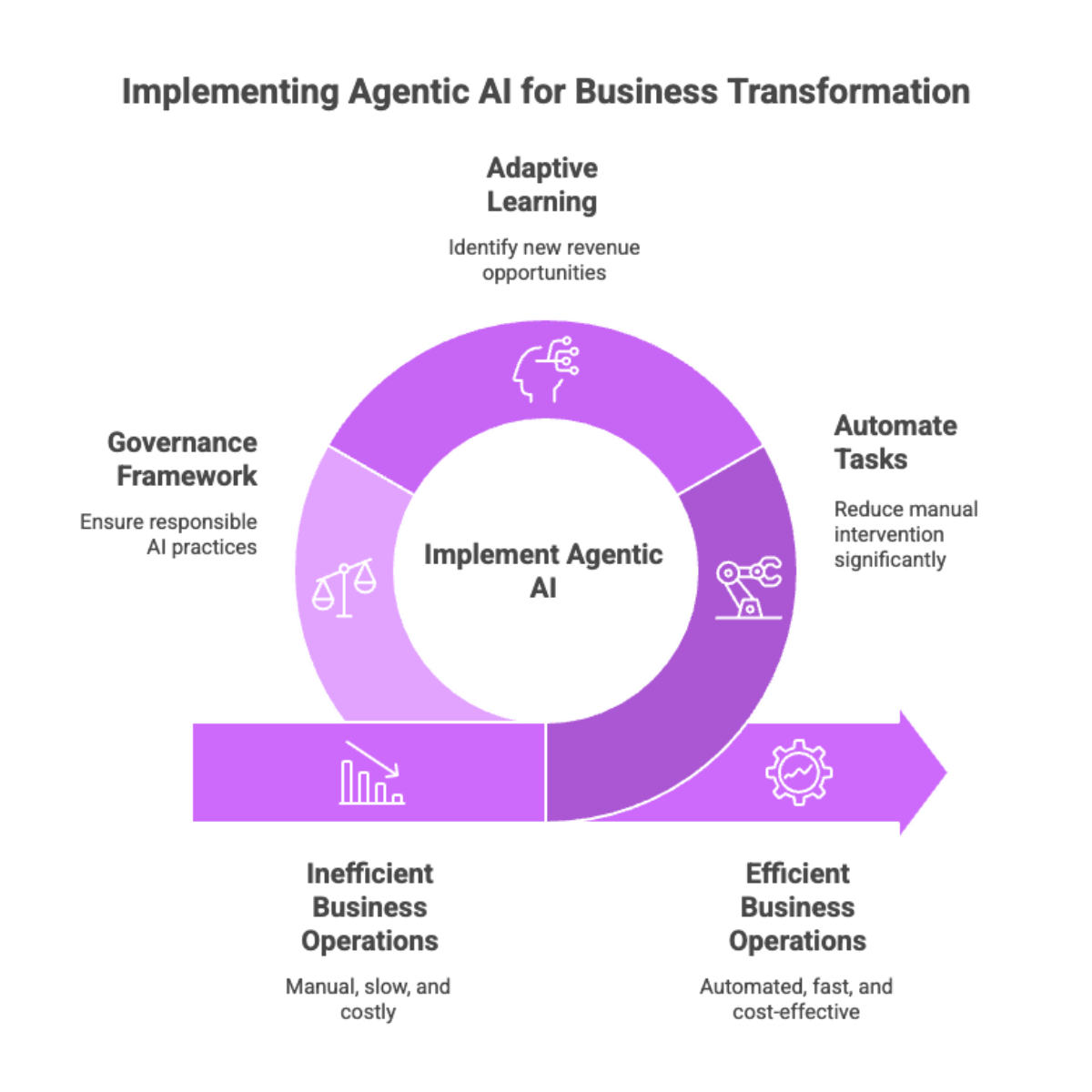

AI Era and Future
We are currently living in the AI era, defined by rapid advancements in AI technologies, increasing AI adoption, and disruptive innovation across every sector.
To remain competitive and informed, it is crucial to access the latest insights on AI developments and trends.
Future-forward organizations are:
Embracing generative AI to personalize experiences and automate creativity
Investing in AI literacy across the entire organization
Exploring AI innovations in real-world scenarios like smart cities, autonomous vehicles, and precision medicine
The future of AI lies in foundation models that understand language, vision, and code, and in developing adaptive systems that align with human values and deliver sustained business value.
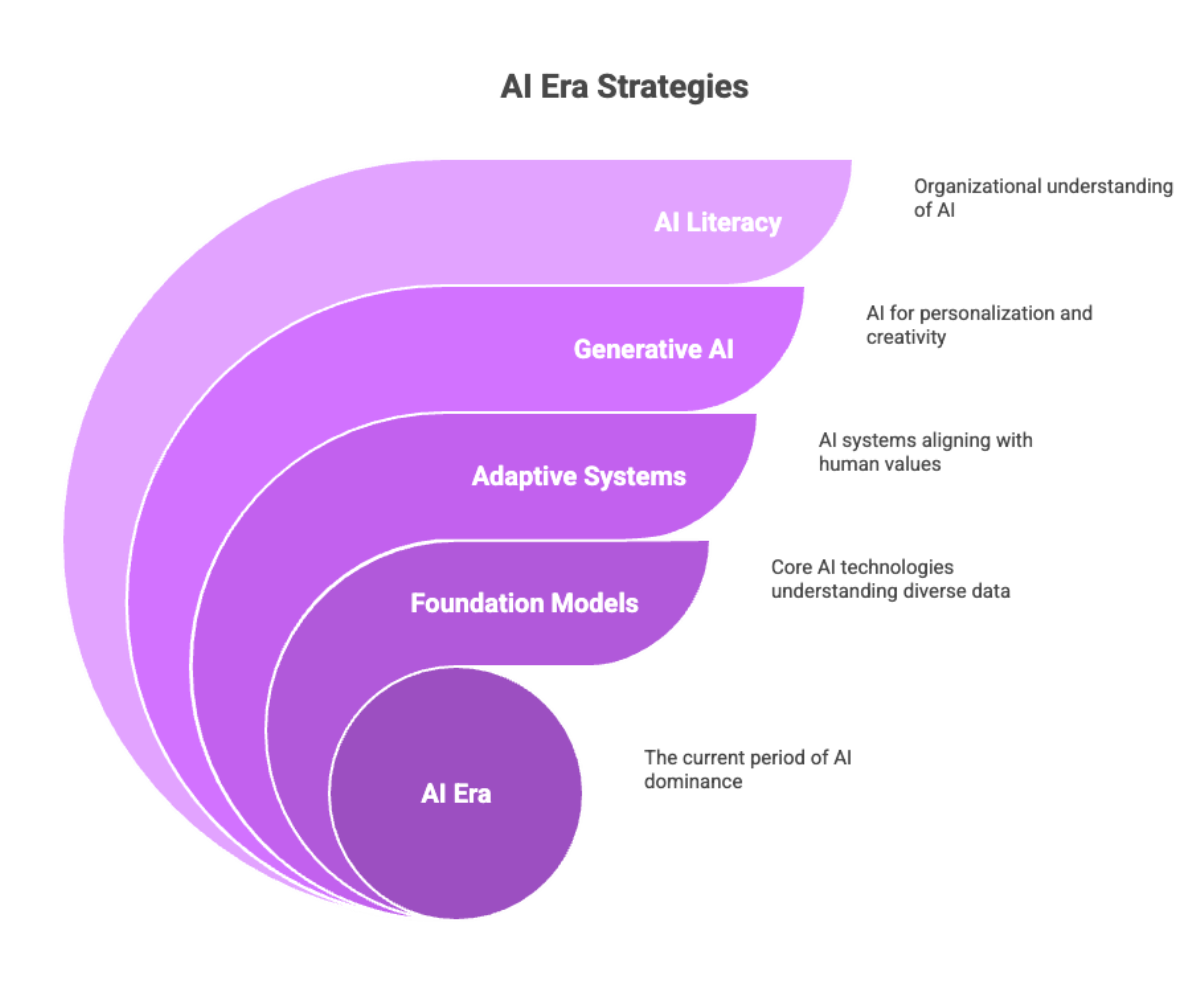

AI Adoption and Implementation
AI adoption and implementation must be intentional, phased, and outcome-driven.
A comprehensive approach includes:
Aligning AI with business objectives
Defining ethical boundaries and safeguards
Leveraging expert AI services to ensure a successful rollout
Businesses that adopt AI without strategy risk underutilizing the technology or facing issues around regulatory compliance. Those who plan well, on the other hand, benefit from optimized productivity, reduced costs, and a strong digital transformation foundation.
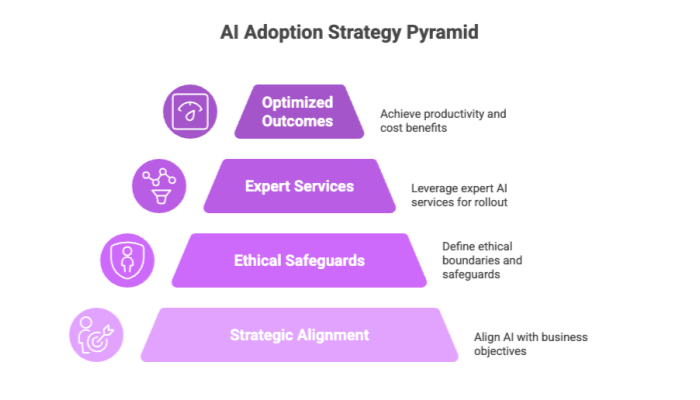

AI Solutions for Business
AI solutions tailored to business needs can transform operations and deliver exceptional results.
Use cases include:
Predictive maintenance for manufacturing
Sentiment analysis in marketing
Intelligent automation for HR and finance
Data-driven insights for supply chain optimization
By partnering with trusted AI services providers, businesses can deploy AI tools and platforms that scale, adapt, and evolve with market demands—ensuring lasting real business impact. Hands-on experience with AI solutions enables organizations to gain practical skills and real-world understanding of AI technologies.
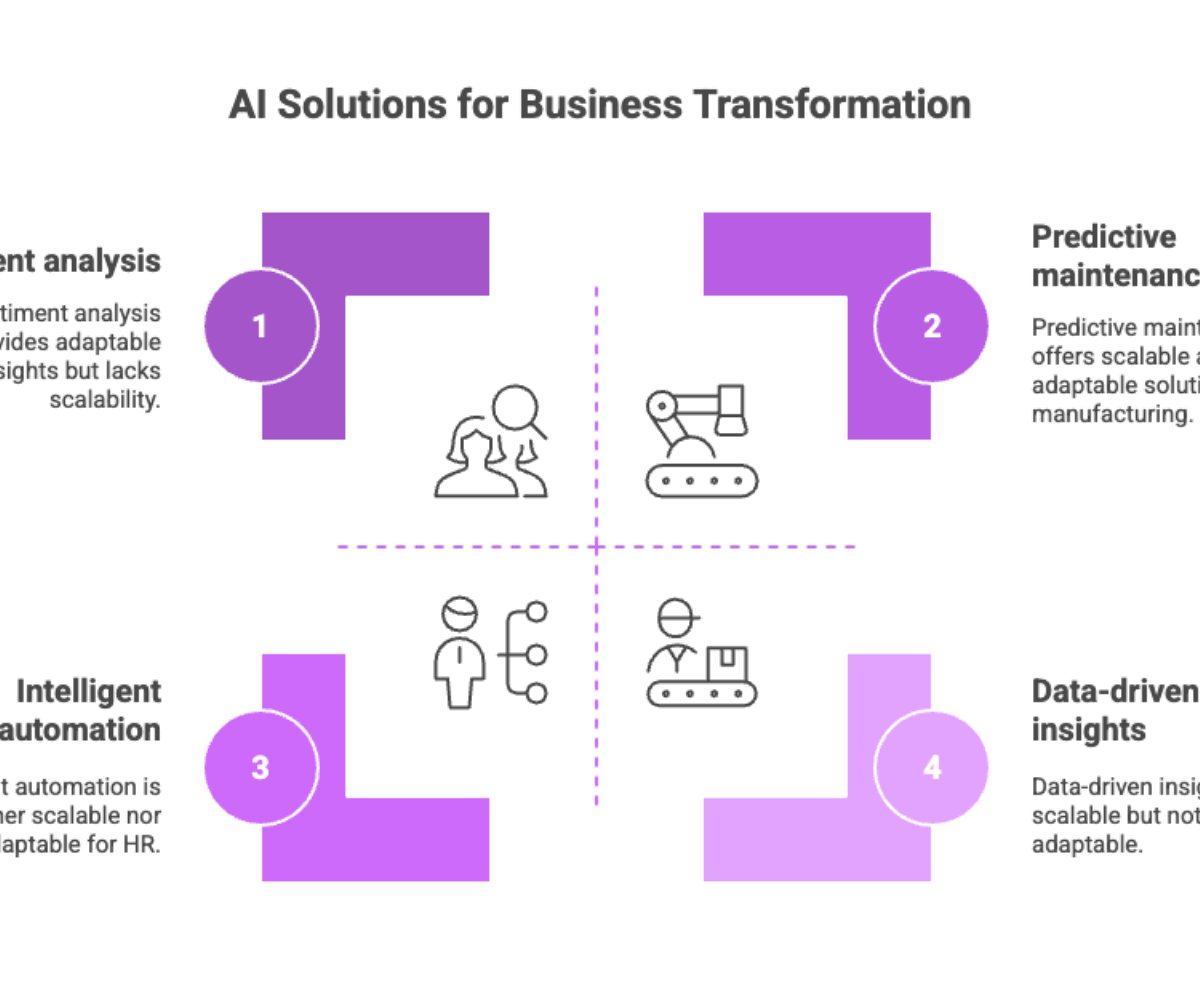

AI Journey
The AI journey is a strategic process that guides organizations from initial exploration to full-scale AI adoption and innovation. It starts with assessing AI readiness—evaluating enterprise data, defining business objectives, and identifying the most impactful AI solutions. As organizations progress, they must select the right AI tools and develop a robust AI infrastructure to support their ambitions.
Navigating the AI journey involves overcoming operational challenges and establishing a strong governance framework to ensure responsible AI use. By focusing on real-world examples and proven applications, businesses can maximize the business value of AI and drive digital transformation. The transformative power of AI lies in its ability to streamline operations, mitigate risks, and enhance decision-making, ultimately leading to increased productivity and a sustainable competitive advantage.
Organizations that prioritize AI innovations and adopt a strategic approach to AI adoption are uniquely positioned to unlock new opportunities and achieve real business impact. By harnessing the power of AI, businesses can drive innovation, increase productivity, and deliver solutions that create lasting value for their customers and stakeholders.
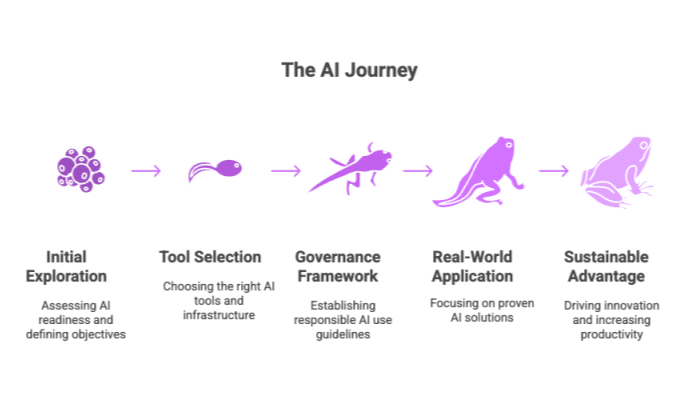

Conclusion: Leading in the AI Era
Artificial intelligence is no longer a futuristic concept—it is a present-day catalyst for business transformation. From streamlining operations to enhancing decision-making and personalizing customer experiences, AI innovations are enabling organizations to thrive in a rapidly evolving world.
To succeed, businesses must:
Invest in AI strategy, infrastructure, and talent
Adopt responsible AI practices
Stay agile and responsive to new AI technologies
As we move deeper into the AI era, those who leverage AI thoughtfully and strategically will lead industries, drive meaningful outcomes, and set new standards for innovation.

